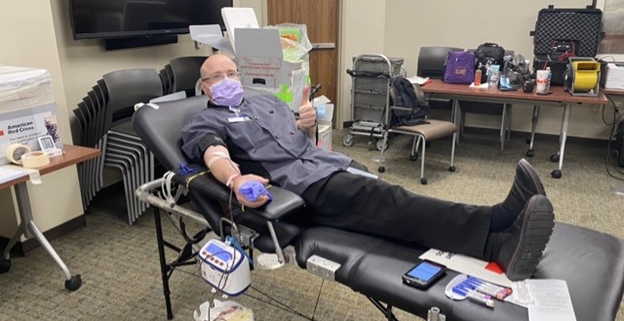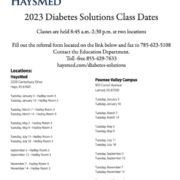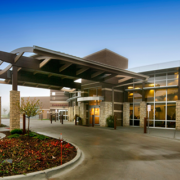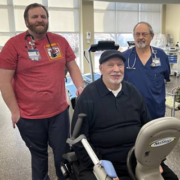Pawnee Valley Community Hospital encourages blood donations
Pawnee Valley Community Hospital (PVCH) staff members have been setting a positive example for more than a decade by hosting quarterly in-house staff blood-donation drives.
And now, they are encouraging the community to roll up their sleeves and join them in giving life-saving blood in observance of National Blood Donor Month in January.
“The staff turnout for our blood drives has been great and unit goals have been met virtually every time,” said Kristi Engle, PVCH lab supervisor. “Staff members see first-hand the hardships that patients and healthcare providers face when there is a blood shortage. This is the strong driving force for their willingness to donate.
“In addition, prospective donors should consider that blood cannot be manufactured; it comes only from volunteers,” Engle continued. “The need for blood is constant because every day someone needs a blood transfusion whether due to a trauma, or acute and chronic conditions.
“One donation can save up to three lives. Donating is a great way to give back and help others, keeping in mind that someday you or your loved ones may need to rely on donated blood.”
Upcoming drives
Local American Red Cross blood drives are set for noon to 6 p.m. Feb. 17 and April 14, both at the Larned Knights of Columbus Hall, 1216 M Road. Those who want to participate can schedule an appointment online at redcross.org or by calling 1-800-RED-CROSS.
A photo ID or American Red Cross Donor Card should be presented at the event.
“You will be asked a few health-related questions to determine your eligibility to donate,” Engle noted. “The whole process can take anywhere from 30 minutes to an hour.”
However, the American Red Cross now offers a “Rapid Pass” that allows a prospective donor to complete a health screening in advance to save time at the event.
While O negative blood is always in high demand because it is the universal donor type, all blood types are important.
Engle noted that when hospitals give a specific blood type that is a direct match for the patient, the supply of O negative blood remains available for those who truly need it.
“We completely understand that someone may be apprehensive about donating blood,” Engle commented. “The fear of needles is real but the American Red Cross does a great job of alleviating that feeling.”











